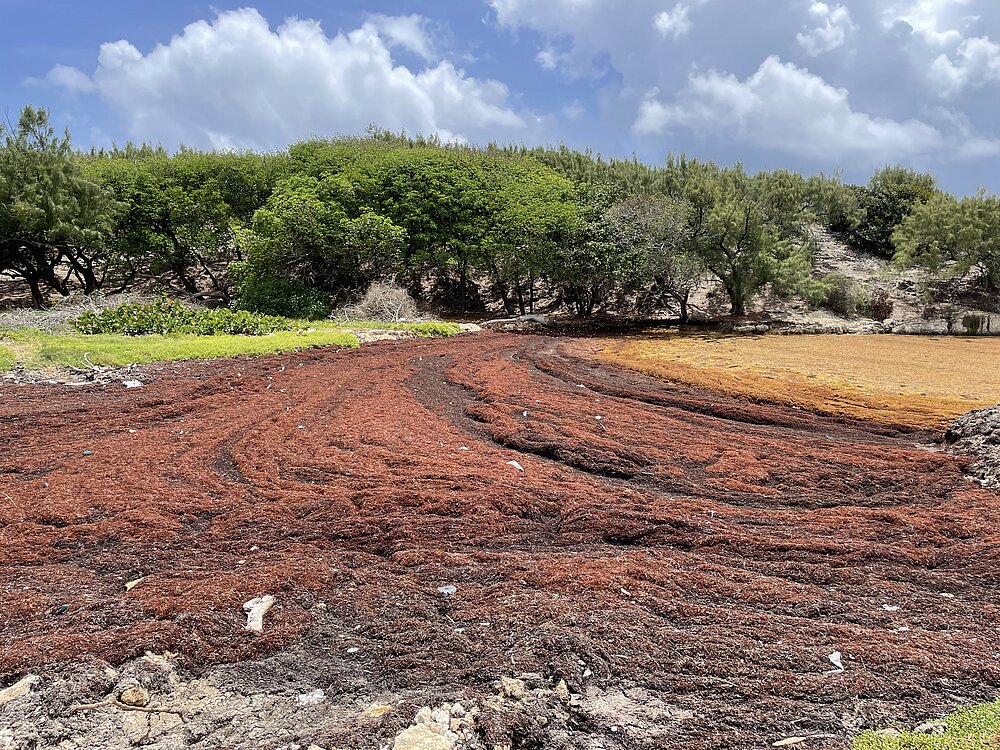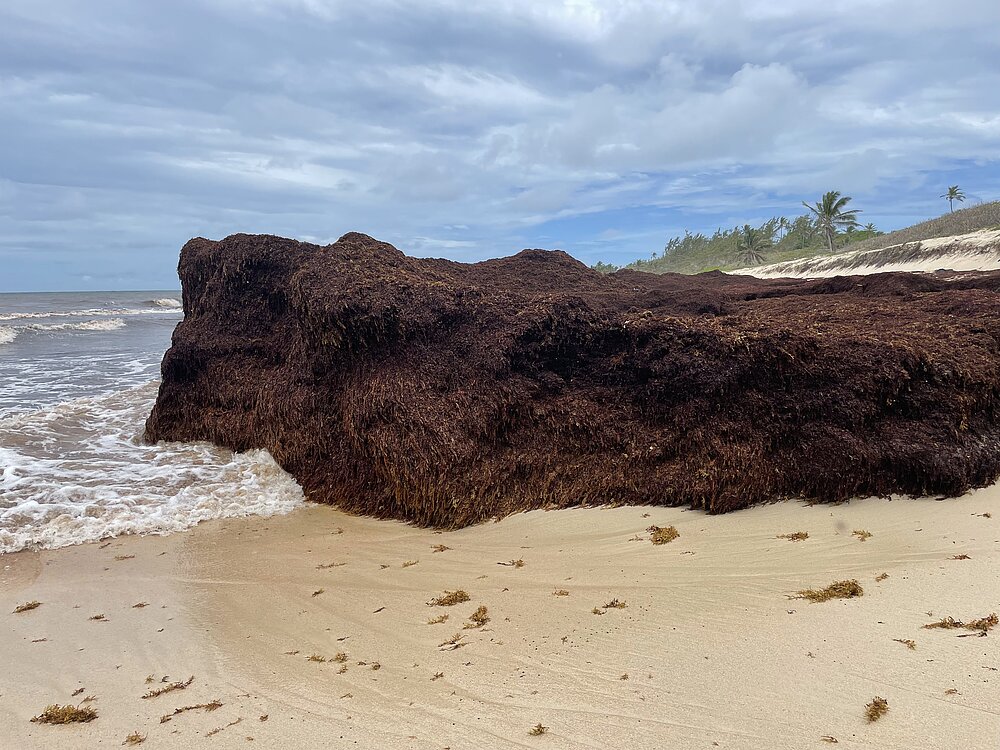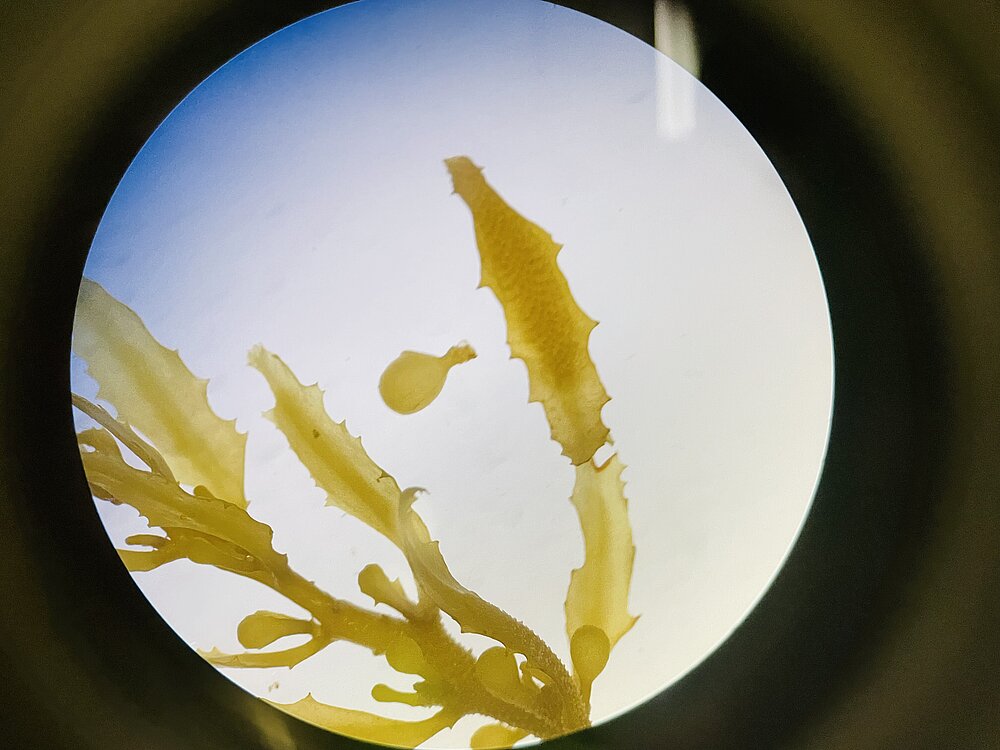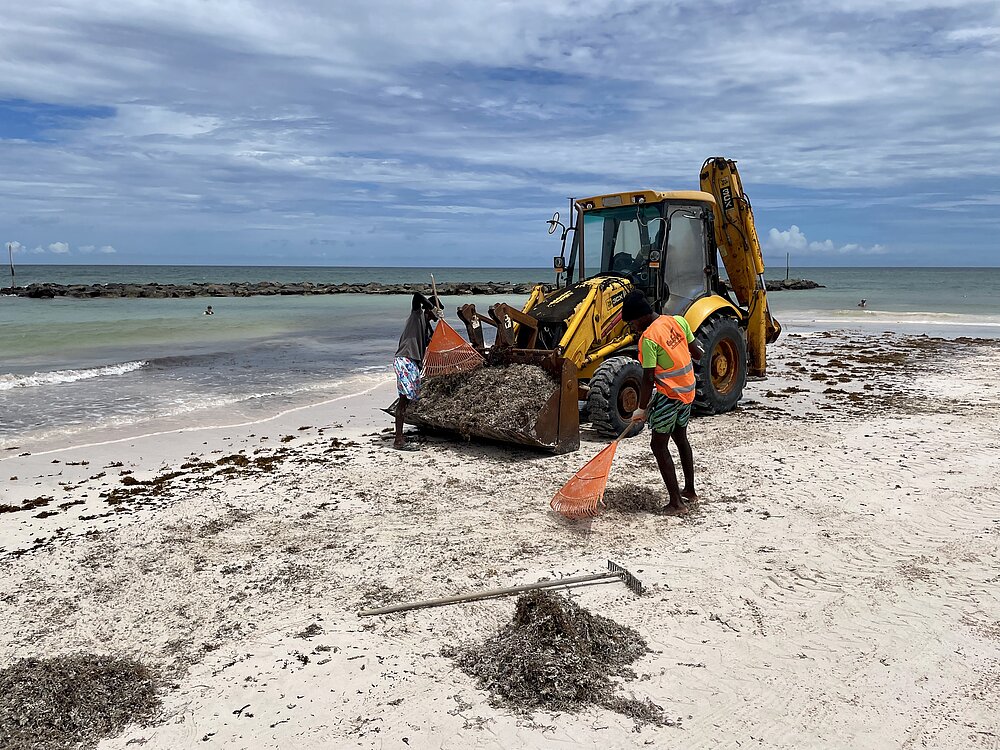Algae Blooms
While microplastics, industrial waste entering the ocean and overfishing are the most common anthropogenic threats to the ecological integrity of the oceans, much less attention has been paid to a more recent development: harmful algae that threaten both oceans and coasts. These algae cause erosion of beaches, prevent photosynthesis of corals and seagrasses and lead to long-term changes in the water and on land. The frequency of their occurrence, their volume and the areas in which they spread are increasing. This phenomenon can currently be observed particularly well in several Caribbean countries in Central and Latin America, where Sargassum algae have been washed ashore in atypical high quantities in recent years. The algae threaten local tourism, the ecosystem and human health. Sargassum algae and emerging practices of dealing with them are the central focus of the research project. The project, which runs until 2025, locates the phenomenon along the Caribbean coasts of Mexico and Barbados, where the “algae problem” is most prominent. In this context of anthropogenic environmental change, questions of responsibility and governance will be answered on the basis of ethnographic field research. The project addresses the following research questions: How is anthropogenic environmental change dealt with along the Caribbean coast? How are commodification, responsibility-making and (in-)formal governance negotiated with and through anthropogenic environmental change in the everyday life of the actors along touristified coastal zones? Methodologically, the project is based on ethnographic field work and is designed as a multi-sited, multi-actor and multi-species study. The project is situated at the nexus of cultural studies, cultural anthropology and within the “naturecultures” debate, with the analytical-theoretical concepts of commodification, responsibility and governance playing a central role.

![[Translate to Englisch:] [Translate to Englisch:]](/fileadmin/_processed_/d/3/csm_P1050290-1_deb3bc7857.jpg)


![[Translate to Englisch:] [Translate to Englisch:]](/fileadmin/_processed_/5/2/csm_P1050462-1a_b2c22efabb.jpg)










